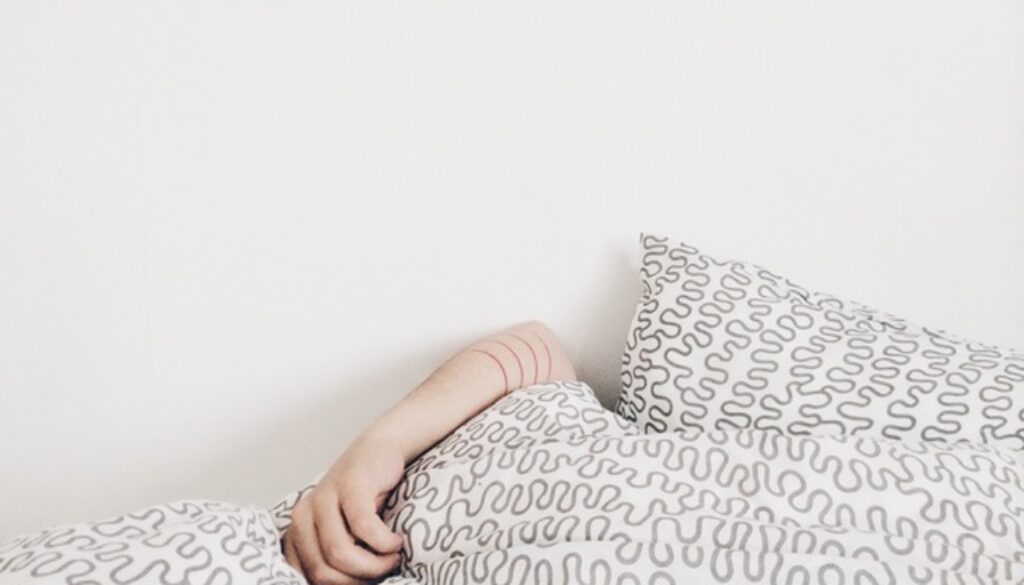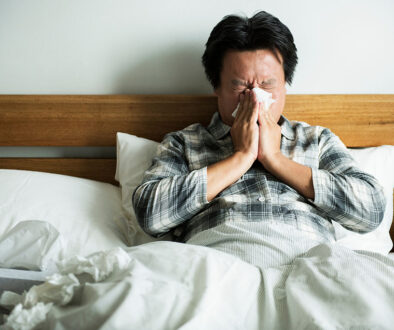5 Ways Allergy Sufferers Can Sleep Soundly
As if Wake County residents needed something else to keep them awake at night! Watery eyes, stuffy noses, and sore throats do much more than make daylight hours miserable, they are also a nightmare when it comes to falling asleep.
According to the National Sleep Foundation, the severity of sleep disturbance is directly proportional to the severity of allergies. Without adequate sleep, daytime drowsiness can trigger memory problems, depression, and a dramatic decrease in work productivity. Allergies make it worse — 48 percent of those with allergic rhinitis said it interfered with sleep.
When you consider that more than 6 million American adults suffered from hay fever in the past 12 months, it’s clear to see that even a few restless nights can have big effects on jobs, families, and quality of life.
The most common North Carolina allergens are pollen, mold, and dust mites. The Tar Heel state is known for having some challenging allergy seasons, and five of its cities were listed in the top 100 “Most Challenging Places to Live with Spring Allergies” by the Asthma and Allergy Foundation of America. On this list:
- Winston-Salem was #19
- Charlotte was #37
- Greensboro was #40
- Durham was #51
- Raleigh was #93
But take heart; there is hope. Following are some tips to help you get some “shut eye” during the height of allergy season.
1. Pinpoint the source of your allergies.
It’s impossible to fix a problem when you can’t pinpoint the exact cause. Allergies are one of the most common health care problems in the world. They are caused by allergens, the most common of which are pollen, pet dander, dust mites, and mold. Take advantage of any local allergy testing and treatment available.
2. Allergy-proof your bedroom.
A few simple steps will allow you to rest easier:
- Use dust-mite-proof covers.
- Wash linens at least once a week.
- Use a dehumidifier to eliminate sources of mold.
- Vacuum often.
- Use a HEPA filter.
3. Don’t bring outside allergens inside your bedroom.
That means if you’ve been working outside, remove your clothes as soon as possible after being outside. Your clothes are pollen magnets, and they can spread allergens throughout your home. Although a nice breeze of fresh air is refreshing, keep your bedroom windows shut.
4. Take a shower in the evening.
A steamy shower can help clear sinuses and help you relax for a good night’s sleep.
5. Tell Fido and kitty to sleep elsewhere.
Of course, pets are a part of our family, but if your allergies are making it difficult to sleep, let your four-legged friends sleep elsewhere. Make the bedroom “off limits” during the day as well. If for some reason you just can’t sleep without your furry buddy snuggling at the foot of the bed, be sure to brush your pet—particularly after he’s been outside—and bathe him frequently to minimize any allergy problems.6. Talk with your local allergist or a physician near you about your medication.
There are several prescription and over-the-counter remedies for hay fever symptoms. While many cause drowsiness, some have the opposite effect. Your medicine may be contributing to your insomnia. Your doctor can prescribe another kind or suggest other suitable treatment.While these five tips will help, the bottom line is unless you get treatment, you may have a lot of tossing and turning during the spring and fall. If you have year-round allergies, immunotherapy could be a great solution.




